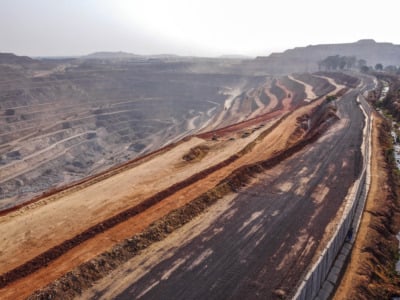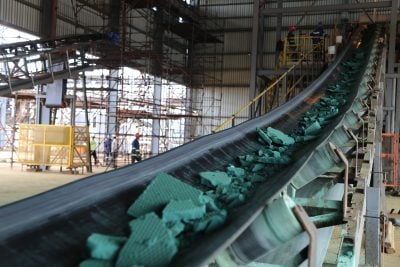Africa’s ability to meet its almost limitless infrastructure needs requires a huge, coordinated agenda.
Around half the continent’s countries face dire debt distress, with risks of sovereign defaults high, debt service burdens crippling, and extreme climate events exponentially magnifying these problems.
The priority surely is new green infrastructure, which holds the key both to build better climate resilience and to drive growth, because it has been shown that countries prioritising green growth generate greater all-round growth by being better able to ride climate shocks.
Yet, apart from suffering disproportionately from money laundering and illicit smuggling of precious metals and minerals, African countries have mobilised the lowest share of private climate finance in the world: although their needs are the greatest, they receive the least help according to the African Development Bank.
And that despite infrastructure investment in low-carbon climate-resilient sectors in Africa offering very high returns for private climate finance.
Plenty of options for climate finance are on offer: social bonds, green bonds and loans, sustainability bonds and sustainability-linked bonds and loans, carbon pricing, debt-for-climate swaps, and blended finance. Yet Africa’s share of green finance has been pitifully low, generally less than 0.5%.
A notable exception is The Great Green Wall Initiative which plans to benefit the Sahel region by funding carbon sequestration through tree plantation, restoring degraded landscapes and revitalising thousands of communities.
Launched in 2007 by the African Union, it would be the largest living structure on the planet, stretching 8,000km across 22 African countries.
The African Development Bank’s Desert to Power project also has huge potential, especially in harnessing the Sahara’s vast solar energy potential.
Another is for Africa to be a supplier of green hydrogen globally, with large-scale hydrogen projects planned in South Africa, Egypt, Mauritania, Morocco, Namibia and Niger.
Since the Continent’s vast resources of critical green minerals – such as cobalt, copper, lithium, nickel, graphite, and manganese – investment in African infrastructure can also bring big returns in driving greener forms of power for vehicles, whether by electric batteries or hydrogen.
Green energy is an absolute priority
With 600m Africans or 43% of the continent lacking access to electricity, and less than one in five connected to a national energy grid, investment in green energy infrastructure is an absolute priority.
In May 2013, African heads of state signed a commitment to a 50-year development plan for the continent, including an integrated high speed train network; the Grand Inga Dam Project (in the Democratic Republic of Congo); a single African air transport market; and an intra-African broadband terrestrial infrastructure.
The latter is urgently needed because Africa’s mobile internet availability lags well behind other regions.
To help address such needs, the Africa50 company is positioning itself to be a leading infrastructure investor by mobilising private finance – and with all African governments as shareholders, it is well placed to make a huge difference. Its focus upon climate-friendly infrastructure investments and in the use of new technologies to help the continent accelerate its transition to net zero is very welcome.
But what remains crystal clear is that the developed world needs to deliver on financing the green infrastructure the African continent desperately needs – and without which developing countries’ own climate emergencies cannot be combated.
This article first appeared in Issue 11 of IC Intelligence Insights. Click to access the full publication.
Want to continue reading? Subscribe today.
You've read all your free articles for this month! Subscribe now to enjoy full access to our content.
Digital Monthly
£8.00 / month
Receive full unlimited access to our articles, opinions, podcasts and more.
Digital Yearly
£70.00 / year
Our best value offer - save £26 and gain access to all of our digital content for an entire year!

 Sign in with Google
Sign in with Google 



